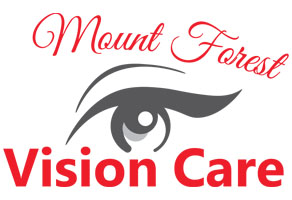What is diabetes?
Diabetes is a serious and sometimes fatal disease deriving from the body’s inability to produce or effectively use insulin, a hormone that controls the amount of blood glucose (sugar), which is an energy source. Since individuals living with diabetes do not produce or effectively use insulin, they are prone to high blood sugar levels, which can damage organs, blood vessels, and nerves.
Diabetes generally is classified as two types:
Type 1 diabetes
Insulin is a natural hormone that helps regulate the levels of blood sugar needed to help “feed” your body. When you are diagnosed with type 1 diabetes, you are considered insulin-dependent and you will need insulin injections or other medical treatment to supply the insulin your body is unable to produce on its own. When you don’t produce enough of your own insulin, your blood sugar is unregulated and levels are too high.
Type 2 diabetes
When you are diagnosed with type 2 diabetes, you generally are considered non-insulin-dependent or insulin-resistant. With this type of diabetes, you produce enough insulin, but your body is unable to make proper use of it. Your body then compensates by producing even more insulin, which can cause an accompanying abnormal increase in blood sugar levels.
With both types of diabetes, abnormal spikes in blood sugar increase your risk of diabetic retinopathy.
Eye damage occurs when chronically high amounts of blood sugar begin to clog or damage blood vessels within the eye’s retina, which contains light-sensitive cells (photoreceptors) necessary for good vision.1
Symptoms of diabetes:
Signs and symptoms of diabetes include, but are not limited to:
• Blurred vision
• Unusual thirst
• Frequent urination
• Weight change (gain or loss)
• Extreme fatigue or lack of energy
• Frequent or recurring infections
• Cuts and bruises that are slow to heal
• Tingling or numbness in the hands or feet
How does diabetes affect the eyes?
Diabetes can seriously affect your eyes, causing temporary or permanent vision loss. That is why annual eye exams are critical for people living with diabetes, and are covered by OHIP regardless of age.
An eye exam can detect the presence of diabetes, as well diabetes-related eye problems such as:
Diabetic retinopathy
Diabetic retinopathy occurs when there is a weakening or swelling of the tiny blood vessels inside your eye. This results in blood leakage, the growth of new blood vessels and other changes.
Glaucoma
Glaucoma is associated with elevated pressure within the eye and can lead to serious vision loss if not detected and treated at an early stage.
Cataracts
Cataracts cause cloudy vision and glare due to the lens inside the eye losing its transparency over time. Cataracts can require changes to your glasses or surgical removal.
Full or partial paralysis of muscles that move the eyes
This can lead to eye misalignment, and consequently double vision.
Decreased corneal sensitivity
Diabetes can damage the nerve endings of the cornea (the clear dome-shaped covering the front of the eye). This can lessen the cornea’s ability to respond to stimulation, such as a foreign body.
Vision problems. For example:
- Fluctuating or blurring of vision
- Occasional double vision
- Loss of visual field
Sources:
1 “Diabetic Retinopathy” Marilyn Haddrill; reviewed by Chris A. Knobbe, MD, Retrieved 13 June 2019. <https://www.allaboutvision.com/conditions/diabetic.htm>
“Diabetes and the Eyes” Ontario Association of Optometrists, Retrieved 13 June 2019. <https://www.optom.on.ca/OAO/Patients/Library/Diabetes_and_the_eyes.aspx>


